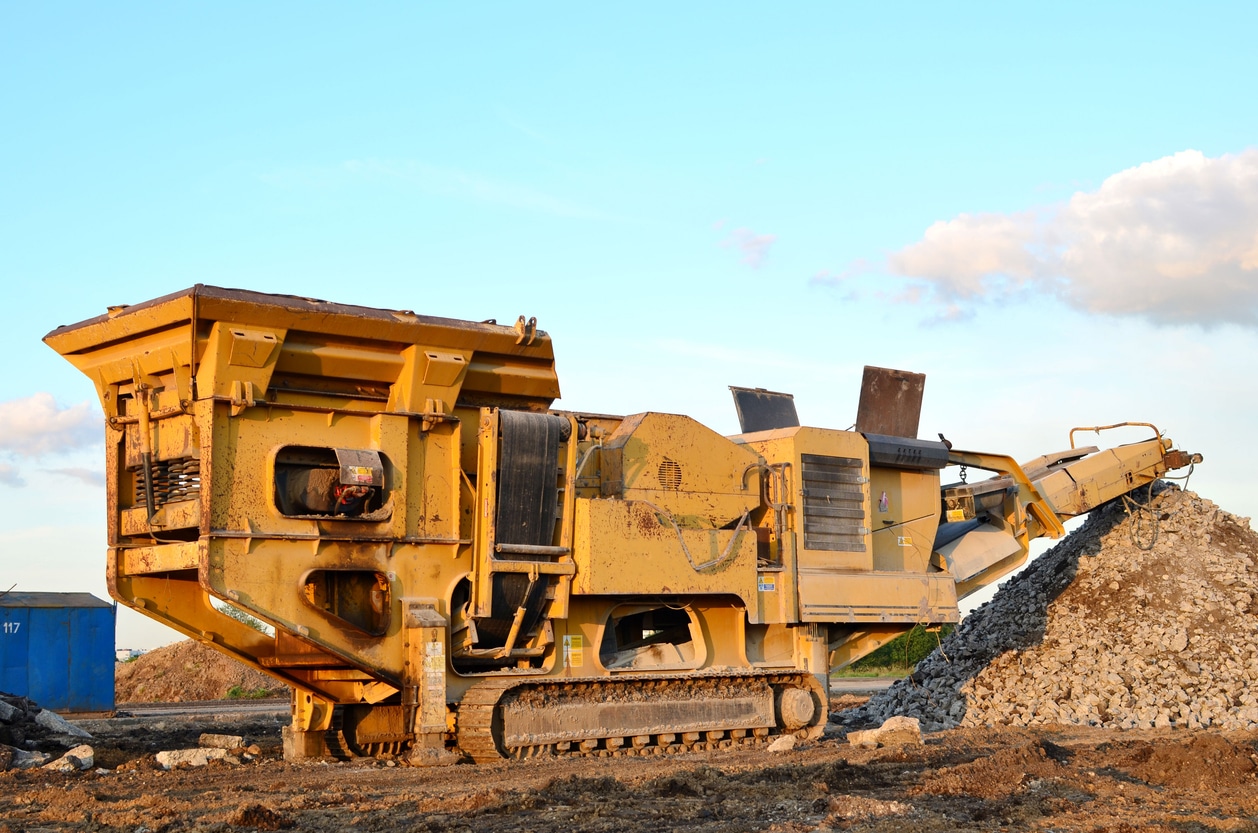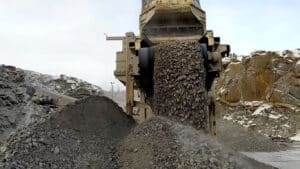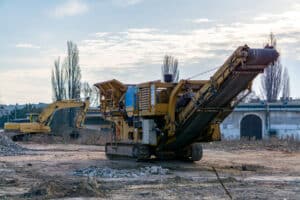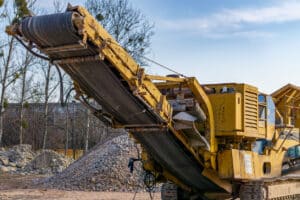
Jaw crushers are one of the most versatile and widely used pieces of aggregate equipment. These powerful machines excel at reducing large rocks and materials into smaller, manageable pieces through compression force. Their versatility makes them effective in a wide range of applications, which is why many businesses rely heavily on them as part of their operations.
Understanding the common applications for jaw crushers can help companies make informed decisions about their crushing equipment needs. From mining operations to recycling facilities, these machines serve critical roles in material processing workflows. This guide will help you determine the best ways jaw crushers may fit into your operations.
Understanding How Jaw Crushers Work
Before diving into applications, it’s important to understand the fundamental operation of jaw crushers. These machines use two crushing jaws – one stationary and one movable – to create a V-shaped crushing chamber. The movable jaw operates through an eccentric shaft that creates a compressive force, breaking down materials as they pass through the chamber.
The crushing process begins when large materials enter the wide opening at the top of the crushing chamber. As the movable jaw compresses the material against the fixed jaw plate, rocks and other materials are broken into progressively smaller pieces. The crushed material then exits through the bottom of the chamber, with the final size determined by the gap setting between the jaw plates.
This simple yet effective mechanism makes jaw crushers particularly well-suited for primary crushing applications where large materials need to be reduced to more manageable sizes for further processing.
Primary Applications in Mining Operations
 The mining industry represents one of the largest markets for jaw crushers. These machines serve as the backbone of ore processing operations, handling the initial size reduction of extracted materials.
The mining industry represents one of the largest markets for jaw crushers. These machines serve as the backbone of ore processing operations, handling the initial size reduction of extracted materials.
Ore Processing
In mining operations, jaw crushers break down large chunks of ore into smaller pieces suitable for secondary crushing and processing. They effectively handle various ore types, including iron, copper, gold, and silver ores. The crushing process helps separate valuable minerals from waste rock, making subsequent extraction and refining more efficient.
Coal Processing
Coal mining operations rely heavily on jaw crushers to reduce coal blocks to appropriate sizes for transportation and further processing. These machines help prepare coal for power plants and other industrial applications by creating uniform particle sizes that burn more efficiently.
Hard Rock Mining
Jaw crushers excel at processing extremely hard materials found in mining operations. Their robust construction and powerful crushing force make them ideal for breaking down granite, quartzite, and other challenging rock types that might damage less sturdy equipment.
Essential Role in Quarrying Operations
Quarrying operations depend on jaw crushers for processing natural stone and aggregate materials. These applications require consistent output quality and reliable performance under demanding conditions.
Stone Production
Quarries use jaw crushers to break down large stone blocks extracted from quarry faces. The machines create various stone sizes used in construction projects, from large riprap to smaller aggregate materials. This versatility makes them indispensable in stone production operations.
Aggregate Manufacturing
The production of construction aggregates represents a major application for jaw crushers. These machines process limestone, granite, and other materials to create the crushed stone used in concrete production, road construction, and building projects.
Construction Industry Applications
 Construction companies utilize jaw crushers for both new construction projects and demolition activities. Their ability to handle diverse materials makes them valuable assets on construction sites.
Construction companies utilize jaw crushers for both new construction projects and demolition activities. Their ability to handle diverse materials makes them valuable assets on construction sites.
Concrete and Asphalt Processing
Construction projects often require on-site crushing of concrete and asphalt materials. Jaw crushers can break down these materials for reuse in new construction, reducing waste and material costs. However, it’s worth noting that impact crushers may be preferred for softer materials like recycled concrete due to their different crushing mechanisms.
Demolition Debris Processing
When buildings and infrastructure are demolished, jaw crushers help process the resulting debris. They can handle concrete with rebar, brick, and other construction materials, transforming waste into reusable aggregate materials.
Recycling Industry Uses
The recycling sector has increasingly utilized jaw crushers for processing various waste materials, contributing to environmental sustainability and resource conservation.
Construction Waste Recycling
Jaw crushers play a crucial role in construction and demolition waste recycling. They process mixed debris from demolition sites, creating reusable materials that would otherwise end up in landfills. This application supports circular economy principles and reduces environmental impact.
Material Recovery
Jaw crushers also help recover valuable materials from a variety of waste streams. They can process glass, certain metals, and other materials, preparing them for further refinement and reuse in manufacturing processes.
Types of Jaw Crushers for Different Applications
Different jaw crusher designs serve specific application needs. There are two primary types of jaw crushers:
- Single-toggle jaw crushers
- Double-toggle jaw crushers
Single-Toggle Jaw Crushers
Single-toggle jaw crushers feature a simpler design with the eccentric shaft located above the crushing chamber. They’re well-suited for applications requiring high capacity and are commonly used in quarrying and mining operations.
Double-Toggle Jaw Crushers
With the eccentric shaft positioned behind the swing jaw, double-toggle crushers provide more controlled crushing action. They’re often preferred for applications requiring precise particle size control and handling of harder materials.
Making the Right Choice for Your Operations
 Selecting the appropriate jaw crusher for your application requires careful consideration of several factors, including:
Selecting the appropriate jaw crusher for your application requires careful consideration of several factors, including:
- Material hardness
- Desired output size
- Production capacity requirements
- Operating conditions
When choosing the right jaw crusher, you should evaluate your specific crushing needs, including the types of materials you’ll process and the required production volumes. Consulting with crushing equipment specialists can help identify the most suitable jaw crusher configuration for your operations.
Power Screening Can Help
If you’re looking for jaw crushers for your operations, Power Screening can help you find the right option for your specific applications. We’ve been the leading heavy equipment dealer in Colorado, New Mexico and Utah since 1984. We understand the nuances of different jaw crushers, and we understand the best applications for each machine. Let us know what you’re using a jaw crusher for, and we can recommend the best machine to address your needs.
In addition to providing the guidance you need when purchasing a jaw crusher, our team is committed to helping you maximize the lifespan of your equipment. We’re always available to provide important repairs and maintenance services to ensure your equipment is running properly and efficiently.
If you don’t have the budget for new jaw crushers, we can still help. We sell used equipment and can set you up with a quality used jaw crusher that addresses your needs while fitting into your budget. We also have jaw crushers for rent if you only need the machine for a one-off job.
Contact us today to learn more about our jaw crushers for sale and rent. Power Screening serves customers in Colorado, New Mexico and Utah.
